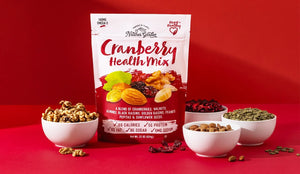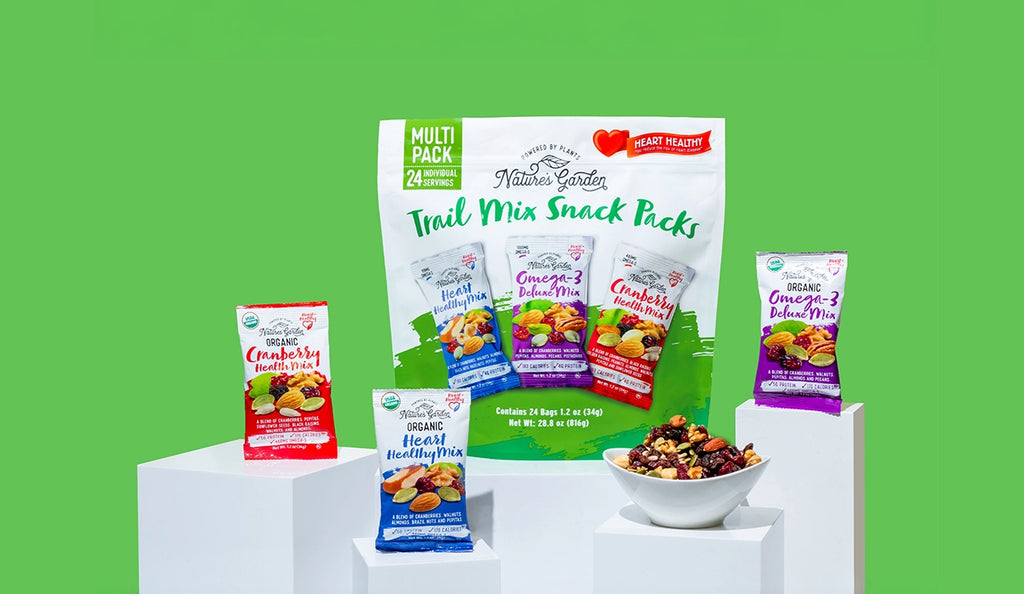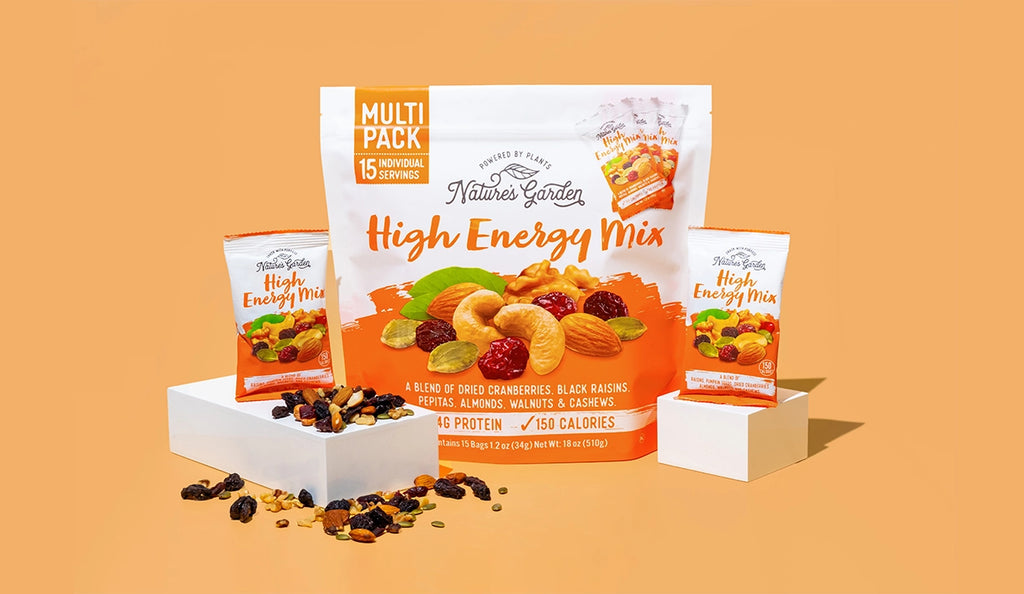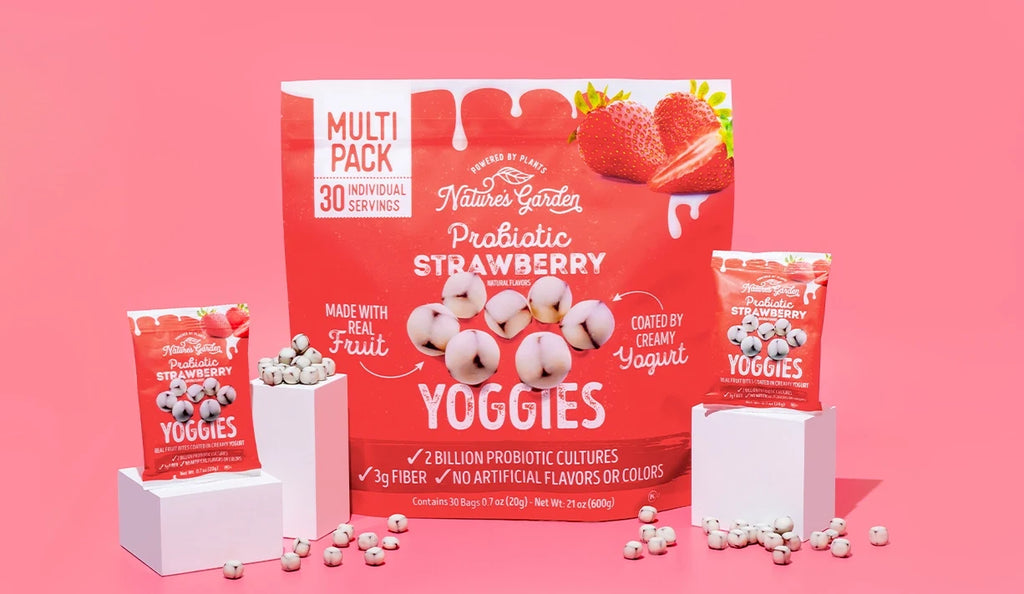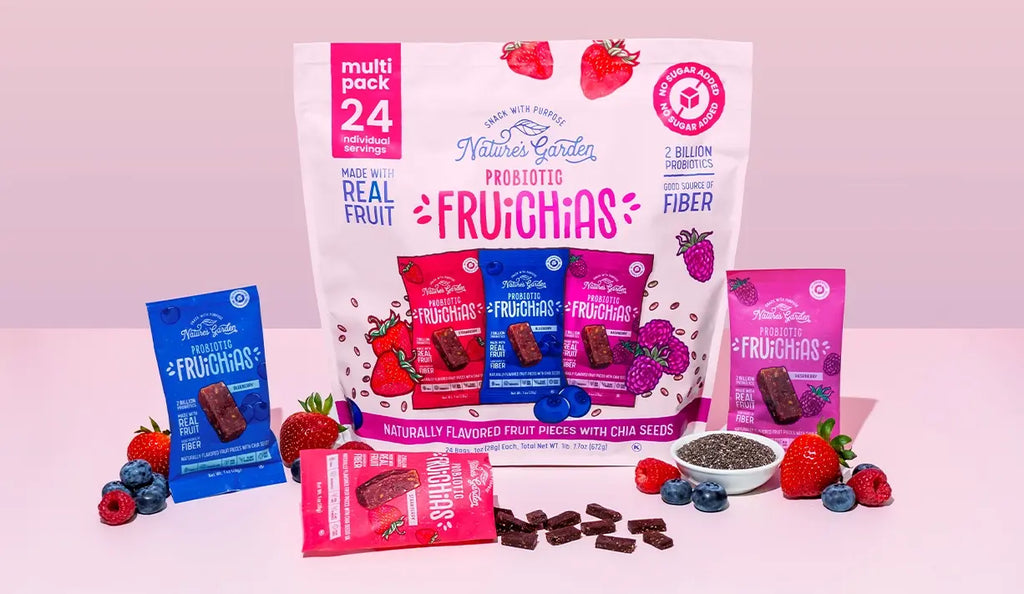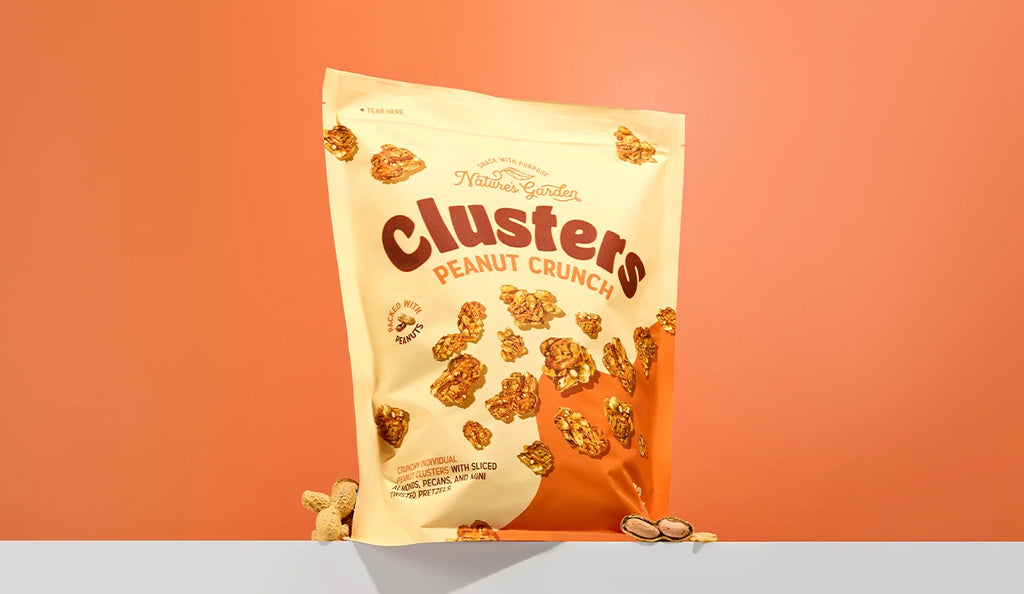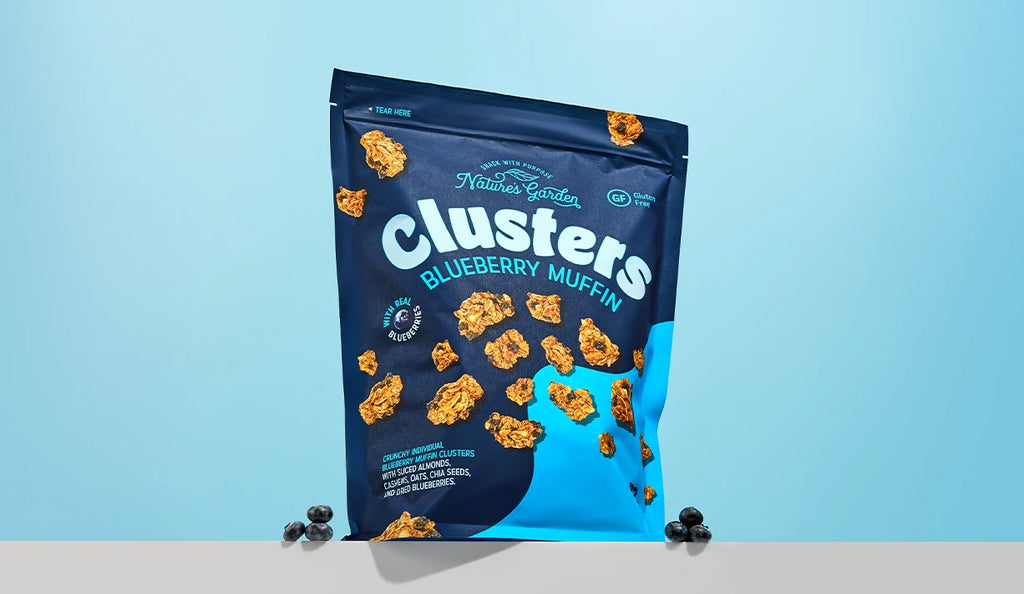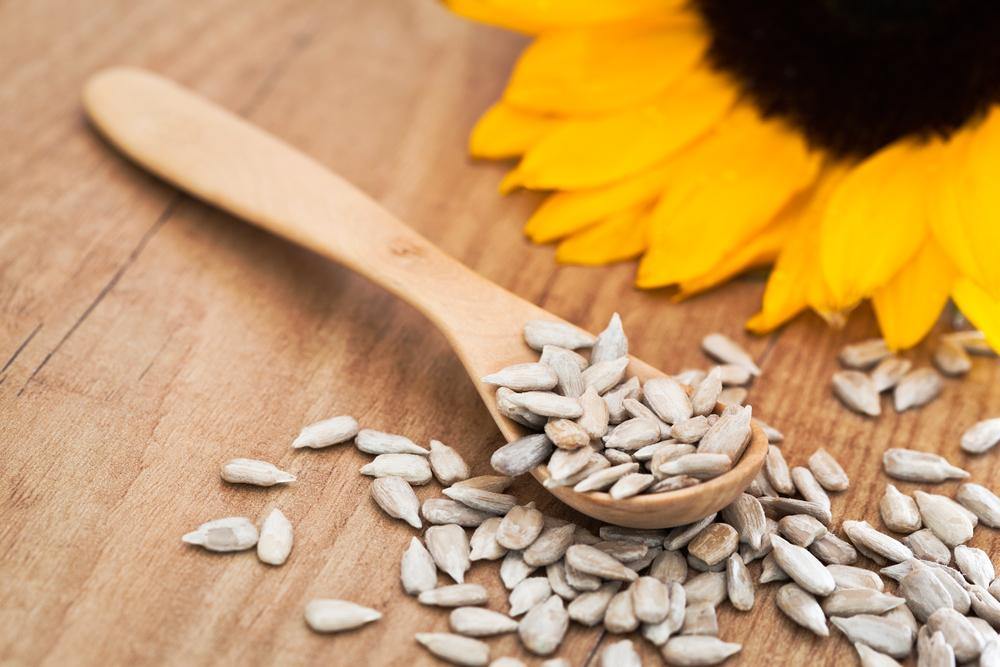Sunflower seeds are the tiny kernels found within some of the most recognizable plants on the planet. What you might not know is just how good they are for you, and how looping them into our diets can be beneficial for us. They’re commonly known for their crunchy texture and nutty flavor that you can find as the base of a variety of products at your local supermarket like in sunflower seed butter, or roasted, salted, or lightly seasoned in their natural seed for. Besides being tasty, they're also nutritious, packed with healthy fats, protein, fiber, vitamins, and minerals. That’s why they’re the perfect toppings for things like yogurt, or something to incorporate into a homemade trail mix, because they provide a extra, subtle nutritional value. The Cranberry Health Mix that we offer here at Nature’s Garden is the perfect example of how to incorporate this nutrient packed superfood into your diet.
What are the health benefits of sunflower seeds?
Most people don’t initially think of sunflower seeds when they’re having a conversation, or making decisions about how to improve their health through the foods they eat. Although that’s true, most seeds and nuts alike are loaded with nutrients. Sunflower seeds specifically, “have a higher amount of some vitamins, mineral, and healthy fats than other seeds, says Gillian Culbertson, registered and licensed dietician, of the Cleveland Health Clinic. She also adds that, “they are one of the most nutritious foods you can eat. And some of their benefits, like supporting healthy thyroid function, are somewhat unique.
Sunflower seeds are good for you.
Sunflower seeds are plentiful in antioxidants like vitamin E as well as flavonoids. Gillian Culbertson also notes that “Antioxidants prevent free radical damage that can lead to cancerous changed in your cells.”
Why should you eat sunflower seeds?
Sunflower seeds ultimately contribute to a range of health benefits, like many other seeds and nuts that we have available to work into our diets. Registered dietician Kathy McManus in conversation with Howard E. LeWine, MD of Harvard Health Publishing says, “Seeds have mostly healthy fats, some fiber, and about 150 calories per ounce. And they do have protein, about 5 to 9 grams per ounce.” Seeds are also generally rich in fiber, which is crucial for gut health, and influences our overall mood. Some of the specifics attributed to sunflower seeds and their connection to our health are:
- Heart health: The high content of unsaturated fats, including monosaturated and polyunsaturated fats, can help lower bad cholesterol levels and reduce the risk of heart disease.
- Brain health: the high levels of vitamin E in sunflower seeds are beneficial for brain health and cognitive function. They also help to protect against age-related cognitive decline.
- Bone health: Since sunflower seeds are a good source of magnesium, which is essential for maintaining strong bones and may help reduce the risk of osteoporosis.
- Blood sugar regulation: The combination of protein, fiber, and healthy fats in sunflower seeds can help stabilize blood sugar levels, making them a suitable snack option for people with diabetes or those looking to manage their blood sugar levels.
- Skin Health: The antioxidants and healthy fats in sunflower seeds may contribute to healthier skin by protecting against damage from UV rays and promoting collagen production.
- Mood regulation: Sunflower seeds contain tryptophan, an amino acid that the body converts into serotonin, a neurotransmitter that regulates mood, sleep, and appetite.
Are sunflower seeds superfood?
Sunflower seeds are often referred to as a superfood because of their impressive nutritional profile. While ‘superfood’ doesn’t technically have a strict scientific definition attributed to it, dieticians and other health professional consider them to be highly nutritious and offer numerous health benefits, hence the term, ‘superfood.’ The above list of direct benefits of sunflower seeds are what typically bring sunflower seeds into that nutritional conversation.
Incorporating sunflower seeds into your diet.
There are plenty of ways to incorporate sunflower seeds into our diets, it just takes the conscious effort to do so. Some easy ways to add them to your diet are:
- Snacking on them plain as you can buy them roasted, salted or raw.
- Adding them to salads, smoothies, or trail mix.
- Baking them into breads, muffins, or other snacks.
- Topping yogurt or oatmeal with sunflower seeds.

If you want to take some of the thinking out of adding them into various dishes, there’s the option to buy prepacked combos that promise to energize and give you the healthy boost you need to get through your day from Nature’s Garden here.
